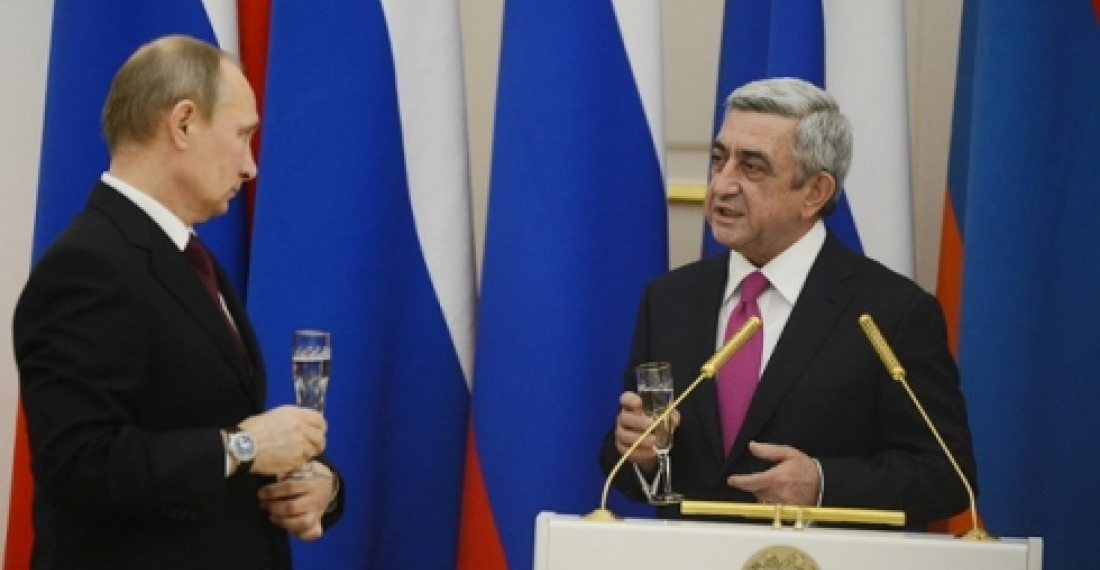The President of Russia Vladimir Putin on Monday made a short official visit to Armenia. Accompanied by a high powered delegation of Ministers, Regional Governors and representatives of Russian State and Private companies, the President visited the Armenian city of Gyumri where a large Russian military base is located, and after travelled to Yerevan for official meetings with his Armenian counterpart, President Serzh Sargsyan.
During the course of the visit the two sides signed twelve key documents, which according to Armenian government sources were related to "political, economic, strategic alliance, nuclear security, energy, education and the tourism sectors".
According to President Sargsyan, speaking at a joint press conference at the end of the visit,
"Those accords will replenish more than one hundred interstate treaties and agreements encompassing the legal-contractual base of our relations. Armenia's parliament will ratify this week the military-technical cooperation development agreement which offers wide opportunities for purchasing arms supplies and military equipment at internal prices. That will leave no agreement - whether bilateral or in the CSTO (Collective Security Treaty Organizations) frameworks - unratified by the Armenian side".
In tangible terms, Armenia will benefit from cheaper weapons, oil and gas as a result, since these will now be sold to it "at domestic prices". The agreements however also confirm the total dominance of Armenia's energy sector by Russia.
Whilst Russia announced the sale of cheap arms to Armenia, its President was talking peace in Yerevan. Referring to the Nagorno-Karabakh conflict, President Putin said that he hoped that there will not be any further bloodshed in a conflict that is so near to Russia. He told president Sargsyan,
"You know that I have recently been on a visit to Baku. We also had an in-depth conversation with Azerbaijani President about the prospects of the settlement. I am very pleased to note that the meeting, which was held on November 19 in Vienna, was clearly positive. We hope for common sense and aspiration for the settlement from both sides. We will do everything to promote it within the framework of the OSCE Minsk Group."
The visit completes Russian embrace of Armenia, a process that has been very much personally led by President Putin, who during the course of his visit also made it clear that Russia intended to stay in the Caucasus and in Armenia for a long a time. Armenia is now locked in this embrace, politically, militarily and economically. The Presidency of Serzh Sargsyan has thus been defined, for this will be the legacy for which he will be remembered.
Time will tell if this is the right course for Armenia or not. President Putin returned back to Russia last night, leaving Armenians with much to think about.
source: commonspace.eu
photo: President Sargsyan toasting President Putin at the end of the Russian's president's short official visit to Armenia on 2 December 2013. (photo courtesy of the Press Service of the Armenian President.)







